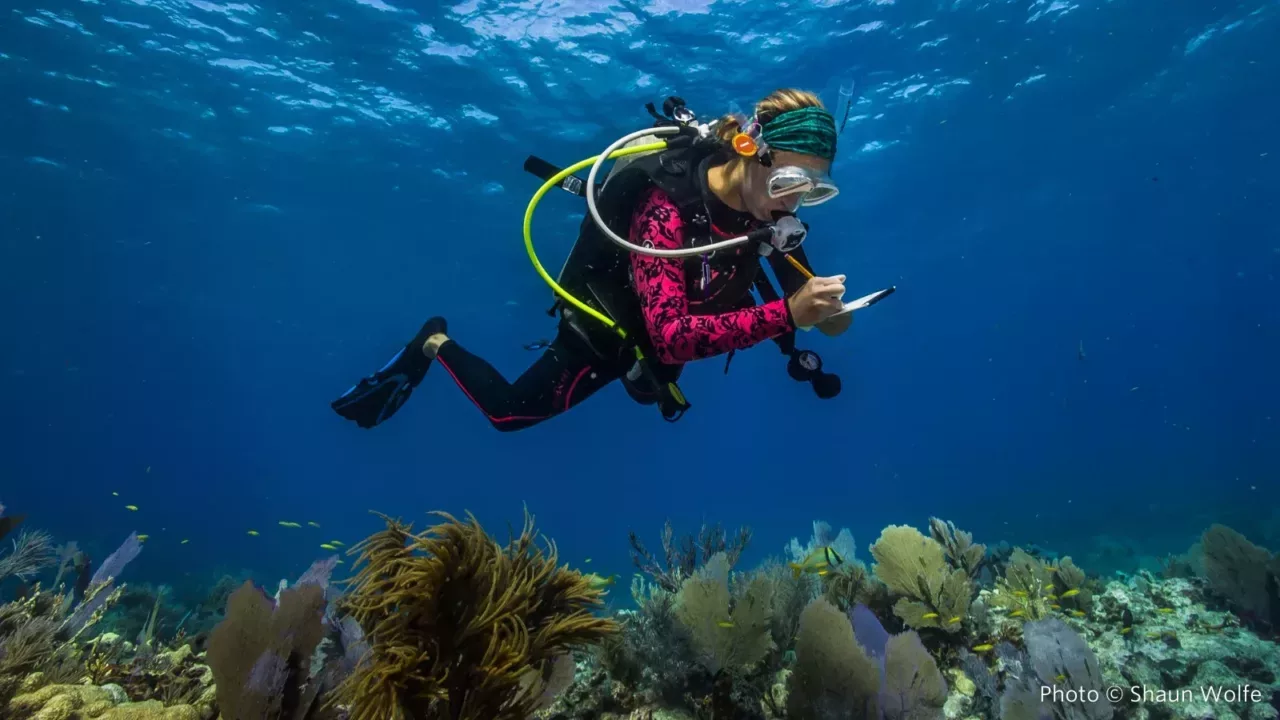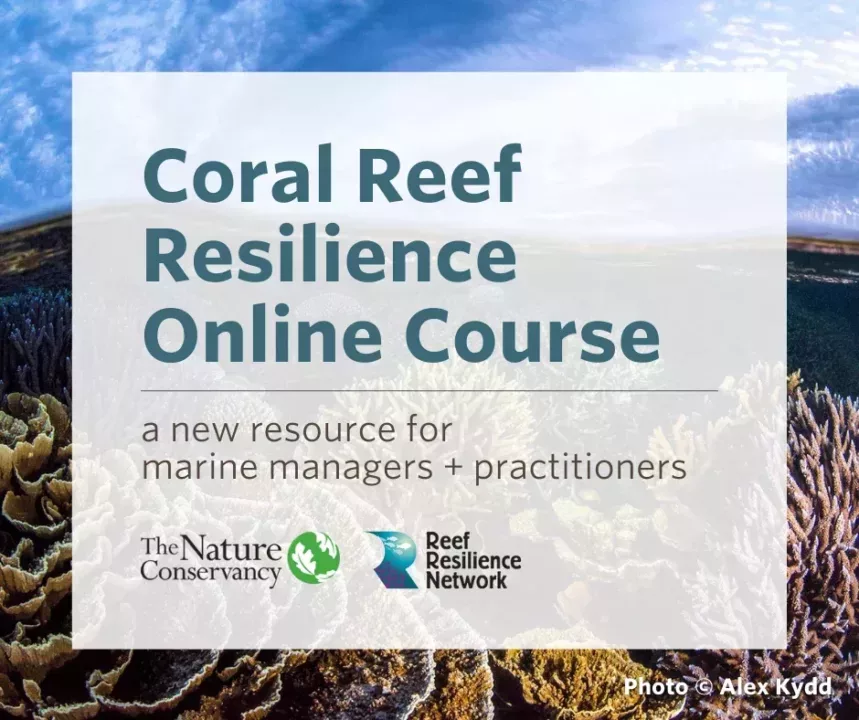The Coral Reef Resilience Online Course, by the Reef Resilience Network, is designed to provide marine managers and practitioners with the necessary background to support coral reef resilience in the face of climate change. The course explores the ecology of coral reef ecosystems, threats to reefs, principles and attributes of social-ecological reef resilience, guidance for assessing and monitoring reefs for resilience, concepts and applications of resilience-based management, and strategies available for managing the resilience of reefs.
The free online course is accessible to participants around the world, takes approximately six hours to complete, and consists of six lessons:
- Coral Reef Ecology – provides foundational information on coral reef ecology, including the coral organism, reef habitat (e.g., formation, zonation, and biogeography), reef communities, and connections with other nearby habitats, to support the resilience of reef ecosystems.
- Threats to Coral Reefs – describes threats to coral reefs, including climate change threats (e.g., warming seas and ocean acidification), local human threats (like pollution and overfishing), and biotic threats (e.g., disease and invasive species). This lesson also describes the impacts of these threats on reefs, such as how warm temperatures cause mass coral bleaching.
- Principles of Reef Resilience – explores the concept of resilience, including the components of resilience; principles of resilience for social-ecological systems; and the attributes of coral reefs and reef-dependent communities that lead to resilience. The lesson also describes key resilience indicators, which are useful for managing reefs for improved resilience.
- Assessing and Monitoring Reefs – provides guidance for developing monitoring programs as well as assessing and monitoring reef resilience and socio-economic conditions. This lesson also compiles the latest in-depth guidance documents to assist in the development of resilience assessments.
- Resilience-Based Management – introduces key principles of Resilience-Based Management (RBM), which uses ecological and social principles to implement actions to protect or enhance natural processes of resilience. The lesson also describes case study examples from around the world, showcasing how RBM is being applied to address specific threats and challenges.
- Management Strategies for Resilience – describes a wide range of management strategies implemented around the world to support reef resilience. Strategies include marine protected areas (MPAs) and resilient MPA design, managing for climate change impacts, reducing land-based sources of pollution, controlling invasive species, managing fisheries, responding to coral disease, and managing for social resilience.
This new course combines and builds on two previous courses first released in 2010: “Introduction to Coral Reef Resilience” and “Advanced Studies in Coral Reef Resilience.” Upon completion of the lessons and the course survey, participants will be able to download a Certificate of Completion.
Read more and access the course on The Reef Resilience Network’s Online Trainings page.


